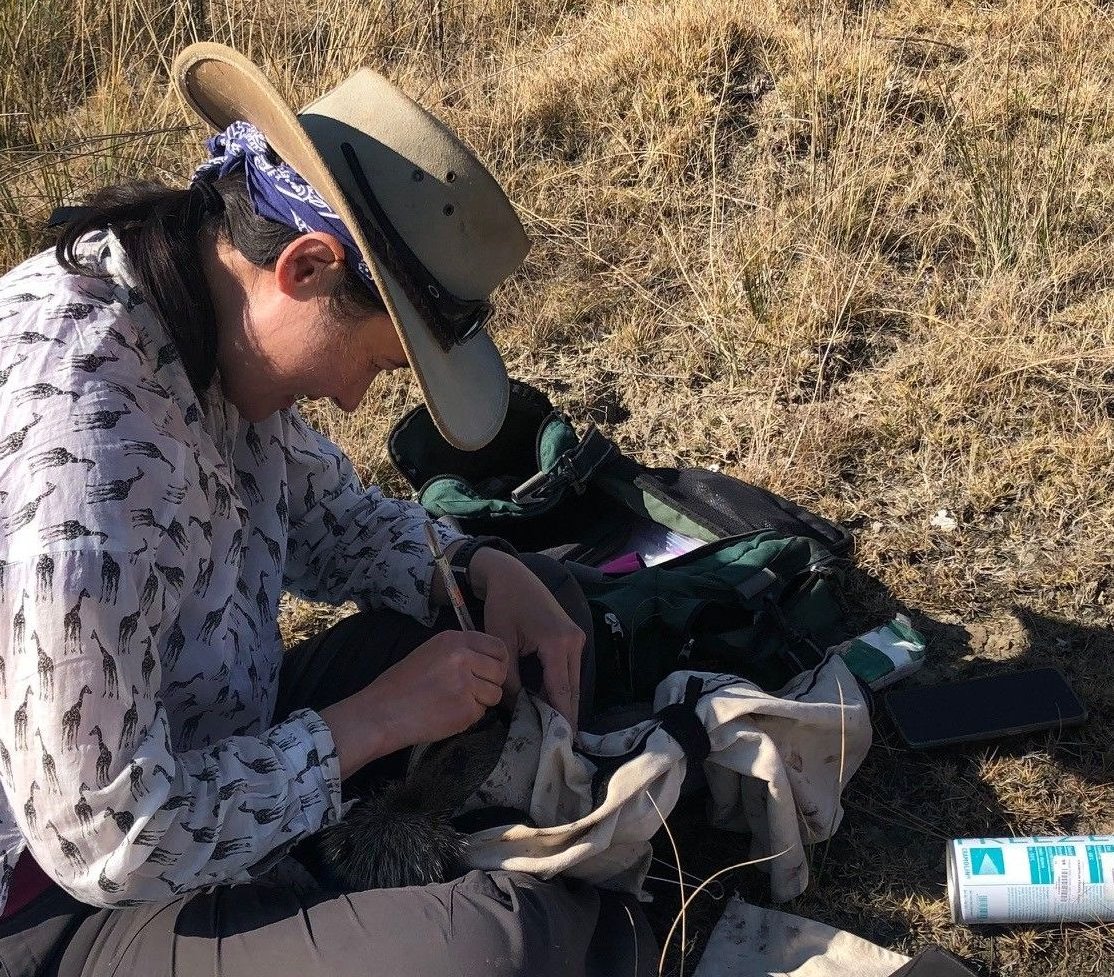CASCB talk: Variation in Cooperation and Social Organization in a Non-aggressive Ground Squirrel
Time
Monday, 14. November 2022
11:45 - 12:45
Location
ZT 702 and online
Organizer
CASCB
Speaker:
Dr Miya Warrington, University of Manitoba, Canada
This event is part of an event series „CASCB Winter Seminar Series 2022/23“.
Variation in cooperation and social organization in a non-aggressive ground squirrel
Group living in animals occurs in diverse lineages including birds, mammals and fishes. The numerous potential benefits of group living have resulted in the evolution of animal societies that differ in social complexity. For example, social group composition may vary from single sex to mixed sex groups, as well as containing individuals of varying ages, relatedness and breeding status. Social groups may also vary in the type and extent of cooperation that they exhibit, with different cooperative behaviours associated with different benefits. In small mammals, notable benefits of group living include increased survival though cooperative group antipredator behaviours, and increased reproductive output resulting from allocare from group members. Ground squirrels (Sciuridae) are wide-spread and vary in their level of sociality; some species are solitary, while other live in social groups with inter-species variation in social structure and organization, mating systems, and level of aggression. Here I discuss the Cape ground squirrels (Xeris inauris), an arid-zone adapted species that lives in Southern Africa. Compared to temperate ground squirrels, Cape ground squirrels have unusually low levels of aggression (no physical aggression, non-territorial) and engage in a variety of cooperative behaviours such as vigilance, predator mobbing, allocare and cooperative breeding. They also exhibit three types of social associations. Females breed plurally and live in matrilineal family groups composed of related adult females and subadults of both sexes. Sexually mature males have two discrete reproductive tactics and either delay dispersal and stay with their mothers and related females (‘natal’) or they disperse into all-male groups of unrelated individuals (‘band’). These all-male bands (of up to 19 individuals) are a fission-fusion social system with males forming ephemeral foraging sub-bands of two to eight individuals. The type and extent of cooperative and collective behaviours exhibited in these three types of social associations (female, natal male, band male) varies. I am currently examining the variation in social associations and behaviours of Cape ground squirrels to address how these social features increases fitness and survival, and thus, contribute towards the maintenance of social living in this species.
Miya Warrington is a postdoctoral fellow with Prof. Jane Waterman’s lab group at the University of Manitoba in Winnipeg, Canada. Miya is broadly interested in social behaviours in animals, and focuses on research topics such as social associations and interactions in group-living animals, using both birds and mammals as model species. Miya also investigates the role behavioural plasticity plays in species’ resilience to rapid environmental changes, including human impacts and climate change. Miya currently works with Cape ground squirrels in South Africa, and has international collaborations on several bird species in Canada, the United Kingdom and Australia.

